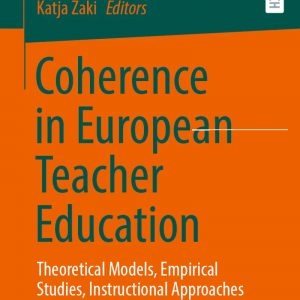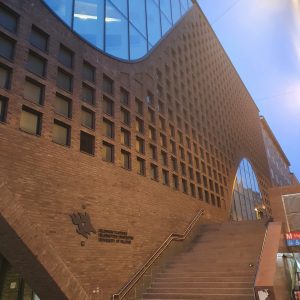IO 5/6: General Information
Two IOs, one focusing on core practices in foreign language teacher education (IO 5), the other one focusing on intercultural communicative competences (as transversal competency) in foreign language teacher education (IO 6), were joined very early on in the project. Many potential synergies had been identified from the beginning which made it seem advisable to work collaboratively and develop learning teaching opportunities on the above-mentioned topics in joint meetings.
Two IOs, one focusing on core practices in foreign language teacher education (IO 5), the other one focusing on intercultural communicative competences (as transversal competency) in foreign language teacher education (IO 6), were joined very early on in the project. Many potential synergies had been identified from the beginning which made it seem advisable to work collaboratively and develop learning teaching opportunities on the above-mentioned topics in joint meetings. Firstly, this intersection concerned the forms, content principles, legal aspects and dissemination of OERs as the key output of both IOs; moreover, we soon identified transversal topics that were equally relevant in projects of both IOs and were therefore addressed in joint thematic meetings, e. g. co-teaching, theory-practice connections and enhancing students’ awareness of coherence.
IO 5/6: Examples including OER
Partners have provided the following existing examples of good practice on coherence at their Universities:
Full title of the example
“Autobiographical writing in contemporary French literature: a dialogue between subject science and subject didactics”
AUTHOR
Melanie Koch-Fröhlich
GOALS
Students’ learning goals:
- to acquire/reactivate basic content knowledge (CK) and pedagogical content knowledge (PCK) from previous semesters/courses
- to establish interrelations between autobiographical theory and literature
- to identify, analyse and evaluate the cultural, social and didactical potential of selected autobiographical texts
- to perceive literature as “knowledge for living”
- to master close-reading (language, imagery, intertextuality, syntax and form)
- to justify decisions in scientific debate
- to demonstrate the ability to didactically reconstruct and transform the CK content for school-related teaching and learning contexts.
Domains/aspects of coherence
CK, PCK
DOWNLOAD
Full title of the example
“Subject sciences and subject didactics in dialogue: A task-based tandem seminar”
AUTHORS
Frank Reiser, Katja Zaki
GOALS
- Student teachers can relate their knowledge of cultural/literary studies and subject didactics in general and on cultural memory in particular to their future profession as a foreign language teacher
- They can analyse authentic texts and other cultural media in terms of language, cultural and literary structures as well as didactics and use them in a competence and task-oriented way
Domains/aspects of coherence
CK, PCK, theory-practice
DOWNLOAD
Full title of the example
“Linguistics in Foreign Language Teacher Education”
AUTHOR
Dr. Anna Rosen
GOALS
Upon successful completion of this course, students will
- be aware of links between linguistics and EFL teaching;
- be able to use linguistic tools in order to judge the appropriateness and acceptability of learner language and to give adequate feedback;
- be able to assess learner language following linguistic criteria;
- have gained a better understanding of the processes in foreign language acquisition.
Domains/aspects of coherence
Promotion of horizontal coherence (CK ↔ PCK, theory ↔ practice)
DOWNLOAD
Full title of the example
„Assessment Tasks in a Language Education Assessment Course Unit“
AUTHORS
Kaisa Hahl, Raili Hilden, Krista Kylmäkoski, Maija Pietarila
GOALS
On teacher educator level: The OER aims to
- help teacher educators in organizing the teaching of assessment by outlining a tested sample structure of a foreign language education assessment course
- provide concrete assessment tasks
- provide tools and criteria for assessing subject teacher students’ learning outcomes
On student teacher level: Students who have completed the course outlined in the OER will
- understand the dimensions of society and education policy that are related to assessment in developing teaching and education
- understand the principles and types of multifaceted formative and summative assessment of learning and apply them purposefully as well as assess one’s own solutions critically
- know the different functions and objectives of assessment and the significance of feedback and assessment for developing the teaching of one’s own subject and the school community
- have preparedness to network with stakeholders and different actors in the society important for the teaching of their subject when implementing and developing teaching within and outside educational institutions
Domains/aspects of coherence
PCK & PK
DOWNLOADS
Full title of the example
„La vie d’Eva Freud en cours de Langue Vivante (Français)“
Author
Christine Schmider
GOALS
- Development of written expression through the writing of choruses and dialogues relating the life of Eva.
- Academic work on the topography of memory (Places of memory), the discourse of memory (sociological approaches, Maurice Halbwachs, Aleida Assmann, Harald Welzer), family memory, cultural memory)
- Understanding the Lycée Calmette as a place of remembrance for the children of the Alpes Maritimes who were deported and murdered in the Nazi death camps
- Enhancing critical historical thinking by learning how the knowledge of the past is built from traces, archives and testimonies.
- Learning about Nice as occupied zone
- Knowledge about the French Riviera as place of refuge for refugee and exil communities
- Visiting Thorenc and searching for the traces of the hidden jewish refugees during 1942/43
- Researching the lives of young girls and women during Occupation
- Studying School live for girls in the 40s
- Learning about the abortion ban and its consequences
Domains/aspects of coherence
Competence-/Task-based approach
- Holistic, authentic, immersive learning and teaching situations in foreign language teacher education programmes
- Competence of „reflective practicioners“ (Schön 1983)
- Teach what you preach –coherence between learning and teaching
- Project oriented courses which foster relations and connections between
- different fields of the subject and theory and practice
Out of school learning and teaching
- Practice related teaching
- Sustainable learning
- Making Learning material tangible
- Offering learning incentives (Salzmann, 2007)
Teacher Ed students as learners and teachers
- Enhancing self reflectio
- Developping professional awareness
- Sensibilizing for heterogeneity
- Questioning of their own teaching practice
- Changing of perspective
- Familiarizing with colaborative and cooperative teaching methods
- Gaining in confidence
Relevant national repository
https://www.education.gouv.fr/bo/13/Hebdo30/MENE1315928A.htm?cid_bo=73066
DOWNLOADS
Full title of the example
„Working with literature in foreign language teacher education“
AUTHORS
Gerke Doetjes
GOALS
Strengthening coherence between literature and subject didactics in foreign language teacher education by means of observation, reflection and working with the same text through different courses
Domains/aspects of coherence
Literature/content knowledge, subject didactics/pedagogical content knowledge
DOWNLOADS
Full title of the example
„Differentiation as a vehicle for inclusive education“
AUTHOR
Anssi Roiha
Topic
Differentiation in foreign language didactics
GOALS
to become aware of the definitions of differentiation
to become aware of the main research findings on differentiation
to learn about a wide range of different differentiation practices and be able to apply them in their own work
Domains/aspects of coherence
- content knowledge (CK) < linguistics
- pedagogical knowledge (PK) < differentiation
- pedagogical content knowledge (PCK) < differentiation in foreign language teaching
DOWNLOADS
Full title of the example
„Plurilingualism in school language education:
Team teaching as a tool for fostering program coherence“
GOALS
- make use of the twofold teacher education at the Faculty of Teacher Education
- raise student teachers‘ awareness of connections between two parts of the study program
- create more coherence between mother tongue (Croatian language) teaching and foreign language (German) teaching
Domains/aspects of coherence
Specific goal of the course is to enhance the culture of team teaching at the Faculty of Teacher Education as a tool for fostering program coherence at following levels:
- CK of subject 1 (German language) + CK of subject 2 (Croatian language)
- P(C)K of subject 1 (German language) + P(C)K of subject 2 (Croatian language)
DOWNLOADS
TITLE
„General Information on OERs. Everything you always wanted to know about Open Educational Resources (but were afraid to ask)“
Author
Robert Schuwer
Name of the institution
Fontys University of Applied Sciences, Eindhoven, NL
DOWNLOADS
Blog: ConnEcTEd

Coherence in European Teacher Education – Edited volume successfully published
The newly published edited volume on „Coherence in European Teacher Education: Theoretical Models, Empirical Studies, Instructional Approaches“ probably best represents the successful and longstanding collaboration of the ConnEcTEd project consortium. It offers a comprehensive look into the evolving and diverse landscape of teacher education across Europe.

Reisebericht: The ConnEcTEd team presents its work at the EARLI CONFERENCE 2023
The work of the ConnEcTEd team was once again successfully disseminated. At the biennial Earli Conference, resents the largest European conference dealing with the central themes of education, training, teaching and learning, the project team’s results were anticipated and discussed with great interest by the community.

Reisebericht: Tervetuloa helsinkiin – The ConnEcTEd team meets in Helsinki 2023
The ConnEctEd project team met in person again in May 2023, this time in beautiful Helsinki, Finland. The focus of the content work was, among others, the finalization of the work on the theoretical conceptualization of coherence (IO 1), which has been used as the basis for the various other content work and focal points since the beginning of the project.
Funding
This project received funding from the Erasmus+ programme of the European Union (Strategic Partnerships, KA 203).
The contents of this website and the view expressed in the news and publications are the sole responsibility of the authors and under no circumstances can be regarded as reflecting the position of the European Union.

